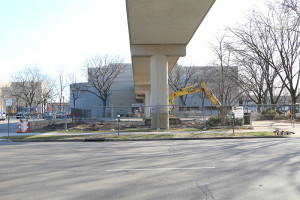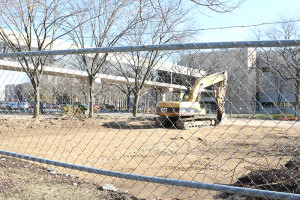 Health Sciences was recently granted a 31.5 million dollar budget to renovate and expand building 14 so the Health Sciences could collaborate and work in one place. The learning community pitched its idea to recondition the building to the Board of Trustees in December.
Health Sciences was recently granted a 31.5 million dollar budget to renovate and expand building 14 so the Health Sciences could collaborate and work in one place. The learning community pitched its idea to recondition the building to the Board of Trustees in December.
The design and move plan will allow the students to not only work together but also understand how each position operates in real world situations and what the responsibilities of each position are in these given situations.
“It’s very important in order to have success that the practitioners all know each other’s responsibilities and know how to work together,” Dean of Health Sciences Rena Shuchat said.
 This collaborative learning is the way all health care education is headed. Like Shuchat said, this allows for success and lets the practitioners be as effective and efficient as possible.
This collaborative learning is the way all health care education is headed. Like Shuchat said, this allows for success and lets the practitioners be as effective and efficient as possible.
While a majority of the programs will be moving to the new facility, two departments, vet tech and clinical lab tech will stay where they currently reside. According to Shuchat, this state of the art technology learning and building expansion will put Sinclair ahead of many other community colleges.
“It’s a really exciting time because one of the major focuses is going to be interdisciplinary instruction,” Assistant Health Sciences Dean Janice Mains said.
The move is also a part of the college’s plan to be more aligned with the community. The new building will house a new rehab clinic and dental clinic that will take patients from the community. This will give the dental clinic more chairs to accommodate more patients. In addition the clinic will be on the first floor and parking will be adjacent making it easier for patients to get to the clinic.
“It’s a benefit to us to know what each one of us is doing,” Professor and Chairperson of Dental Health Sciences Sue Raffee said.
The move and update will open new doors for students. Simulation will be a big part of this advancement. Simulation allows students to get the experience they need without risk or compromising the health of an actual patient.
“Simulation provides low risk experience for high risk results,” Mains said.
Currently the health sciences division has 41 degree and certificate programs and plans to expand in the coming years. Raffee has been at Sinclair since 1980 and says she believes this will be the biggest advancement she has seen at Sinclair for the health sciences division.
The building is planned to be up and running by the fall semester of 2017.
Celia Lavoie
Reporter

